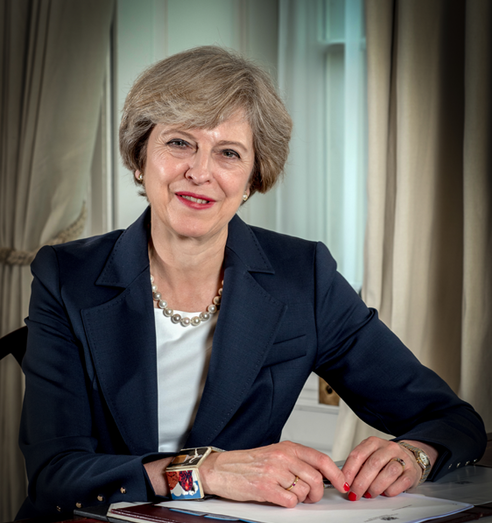From the beginning of her premiership, Theresa May has been compared to Margaret Thatcher, that last great female Prime Minister. Both came to power after a period of national turmoil – Thatcher following the Winter of Discontent and May after the painful and divisive Brexit referendum.
However, similarities can be deceptive. While Thatcher saw Friedrich Hayek as her ideological mentor (according to urban legend slamming down a copy of his Constitution of Liberty on the Cabinet table to show what she believed), Theresa May instead looked back to the work of interventionist Joseph Chamberlain, even attacking the ‘libertarian right’ in her first conference speech as party leader.
Unfortunately, the most recent Conservative Party manifesto further entrenched the move away from free markets and classical liberalism.
Increased employment regulation, including plans to force companies to put workers on boards and further government intervention in pay bargaining, not to mention further retreat from sensible fiscal consolidation, made the manifesto one of the most anti-market Conservative policy offerings in decades.
But worse than the actual policies was the rhetoric of the document. Quotes like “We do not believe in untrammelled free markets” and promises that the government would “act in specific markets” litter the manifesto. While few – even at the IEA – would argue for “untrammelled free markets” without any regulatory check, the clear implication is that Prime Minister May (or perhaps Nick Timothy) believe that the current British economy is too free at present, rather than too constrained.
This is extraordinary. Despite the Cameron Government having a number of liberally good points, it would be difficult to complain it was too taken with free markets. The Government now presides over an economy that pays more as a proportion of GDP in tax than under any previous Conservative Government since World War Two. Meanwhile, the UK tax code is one of the longest and most confusing in the world, clocking in at ten million words in length with half this word count added during George Osborne’s tenure as Chancellor. To give you a sense of what this means, if you were to dedicate yourself full-time (40 hours a week) to reading the entirety of the UK tax code, it would take you two years to read the whole thing. During the same amount of time, you could alternatively read the five longest novels ever written – or War and Peace twenty times.
No government in the past 25 years has maintained much of a hands-off approach to the economy or society. In that time 34,000 new Acts of Parliament or statutory instruments have been introduced, while the regulating of industries such as financial services has increased so rapidly that, on current trajectory, the number of regulators will soon outnumber the number of financiers. It is clear that we live in no libertarian paradise.
So, it is saddening as well as concerning that when framing her vision of the future of Britain, Theresa May looked not to policies that would break down the entrenched elites and give individuals and local areas more control over their own lives and money. That rather than defend the successes that free market liberalism have brought to both Britain and the world, the Conservatives effectively yielded the intellectual and moral debate to the Labour Party by agreeing that the market was not the answer, but that their brand of state control was slightly better than that of Labour.
It is worth remembering why this retreat matters. There has never been a more successful poverty reduction policy than free trade and liberal economics. Hundreds of millions of people across the world have been brought out of poverty as countries such as India and China have liberalised their economies and lifted the dead hand of the state from industry. Countries like New Zealand have freed their farmers from addiction to subsidies, and seen the productivity and wealth creation from doing so. A health care system more open to market provision has saved thousands in countries like the Netherlands and Germany that would have died under the care of the NHS.
Britain stands at a crossroads during the next two years. The choices that this Government (for as long as it lasts) makes will determine the success of Brexit and the economic opportunities available to the next generation. If the Conservatives want to hold back the socialist tide, then the leadership must once again defend the free market and the good it does. Be bold, Prime Minister!
Mark Littlewood is the Director General of the Institute of Economic Affairs. This is an article from Bright Blue’s latest magazine ‘Capitalism in crisis?’





